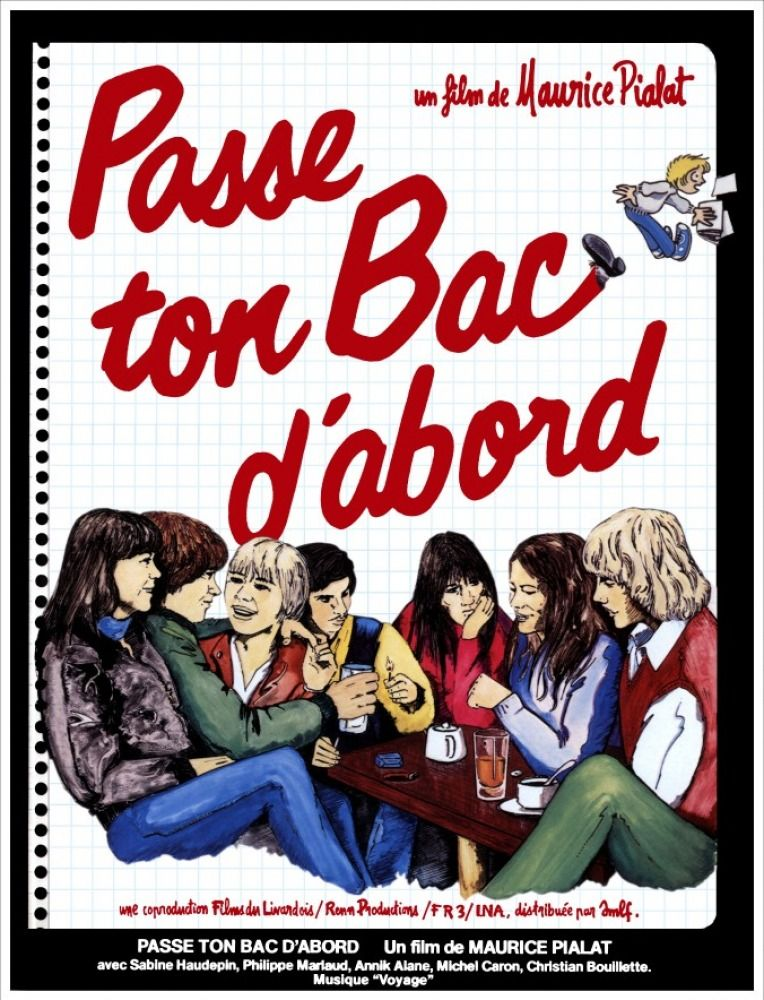Maurice Pialat’s Passe ton bac d’abord looks at a loosely-constituted
group of young people in the dead-end French town of Lens, adults in some ways
(they drink and smoke and are sexually active) but not yet in others (some are
still in school, few if any are economically self-sufficient). The film starts
and ends in philosophy class, the teacher instructing the students on the necessity
to free one’s mind from preconceptions, an admonition hopelessly at odds with a
reality defined by lack of economic and cultural opportunity, by deadening repetition,
by a peer group that makes major life decisions such as marriage or pregnancy
on the basis of entirely short-term calculations. Of course, many films have
covered such territory, but as always, Pialat’s powers of vision and empathy give
his work an almost unnerving connective power. The film certainly feels
naturalistic and drawn from life, but is also muscularly shaped and balanced,
the mundane central realities offset with a sense of possibilities around the
edges. The most striking of these is perhaps the late arrival of a Rolls-Royce,
its passage through the streets given quite a build-up, turning out to contain
two model agency representatives who want to offer one of the girls a contract;
whether or not the opportunity is worth pursuing, the broader point is that the
parents dismiss the two out of hand without even a minimum amount of due
diligence regarding what’s being offered and where it might lead. As a different
kind of example of the film’s acuity: during a trip to the coast, one of the
group meets a girl from Paris who in her unforced way embodies the greater inner
and outer resources that they lack; he has sex with her (at her initiation) and
later shows off to the others the exotic undergarment that he took from her,
but the scene is more poignant than triumphant, an embodiment of distances that
can only momentarily be traversed.


No comments:
Post a Comment